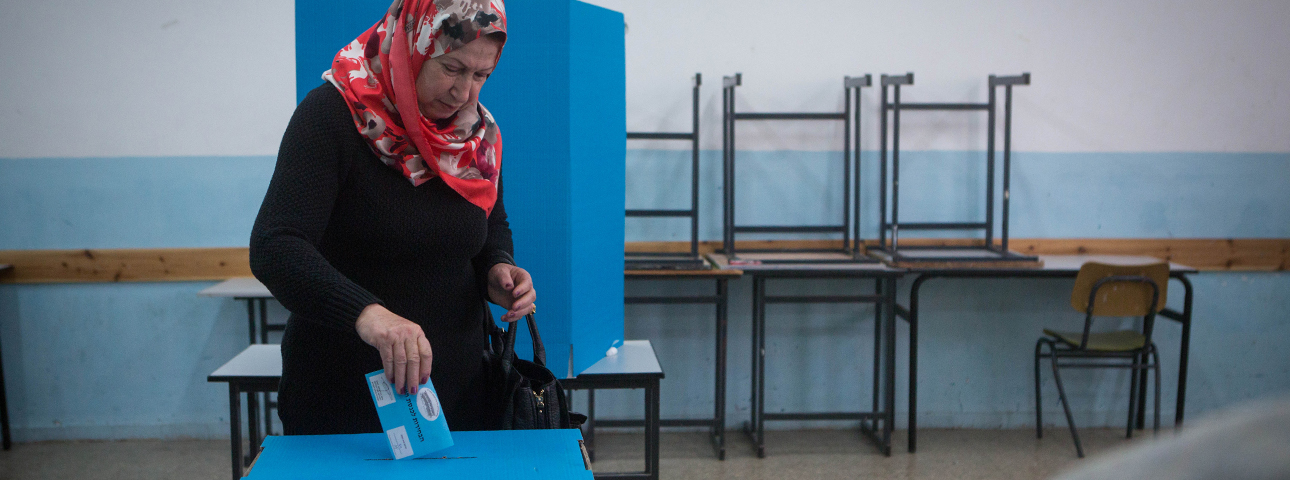Arab Society: Special Election Survey
The Arab vote will be key to determining the outcome of the 2022 election. A special pre-election survey takes the pulse of Arab Israelis.

Dr. Muhammed Khalaily, Researcher at the Israel Democracy Institute on the survey results: “In our survey, 70% of the respondents said that they are sure, or considering that they will vote. In order to understand how this will actually impact voter turnout on Election Day, more research and data must be taken into consideration including personal interviews, anticipated behavior and a number of other factors. Once this is done, current estimates indicate that we will see far lower rate of actual turnout – optimistic readings would find the number closer to 50%. At the end of the day, the outcome will be determined by the Arab parties’ ability to organize on the day of elections and to galvanize their public to go to vote.”
All the interviewees constitute a nationally representative sample of the Arab population in Israel aged 18 and over.
Main findings:
Likelihood of voting – 70% think or are certain they will vote – 29% think or are certain they will not vote.
Is there a party that represents you? Half said that none of the parties represent their views, 31% said one of the parties partially represents their views and only 18% said that one of the parties fully represents their views. Additionally, 53% think that the Arab members of Knesset do not represent the range of views of the Arab public – 45.5% think they do.
Does voting change the situation? The Arab public is divided on this question – 48% think it does and 52% think it doesn’t.
Support joining the coalition – 69.5% support Arab parties joining a coalition government 29% oppose it. 75% said that they support the appointment of Arab minister to the cabinet. As for the previous coalition government – 43% think that Ra’am joining the coalition improved the situation for Arab citizens and 55% don’t agree.
What should be the heart of the election campaign – 54% think that the problem of violence in Arab society, 16% housing, 11% the status of the Al-Aqsa Mosque, and only 5% the Palestinian issue.
Crime in Arab Society in Israel – opinions vary as to the main reason why there is high levels of crime in Arab society: the three top reasons given were: 28% - the economic situation of the Arab public and the large financial rewards of being involved in crime; 28% - poor functioning of the police and law enforcement agencies; 20% - the state doesn’t invest sufficient resources into crime prevention. In addition: 7% said that the leadership of Arab society doesn’t cooperate with the police; 5% said that resources or cooperating will not help because Arab society is violent; 4% blamed values, home and education, 2.5% the decline in power and influence of authoritative institutions in Arab society – 3.5% said all the reasons are relevant and 2% don’t know.
The Arab Society in Israel Survey—Ahead of the November 2022 Knesset Elections was prepared by the Viterbi Family Center for Public Opinion and Policy Research at the Israel Democracy Institute. The survey was conducted by telephone between September 21–28, 2022, with 614 men and women interviewed in Arabic, constituting a nationally representative sample of the Arab population in Israel aged 18 and over. The maximum sampling error was ±3.95% at a confidence level of 95%. Field work was carried out by Afkar Research and Knowledge. The full data file can be found at: Data Israel.
